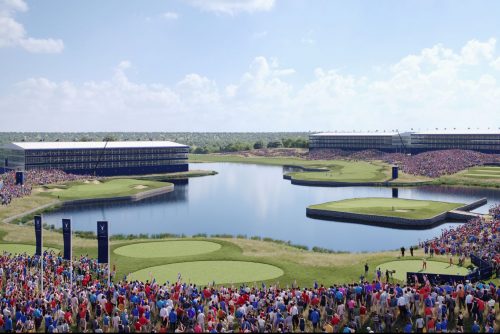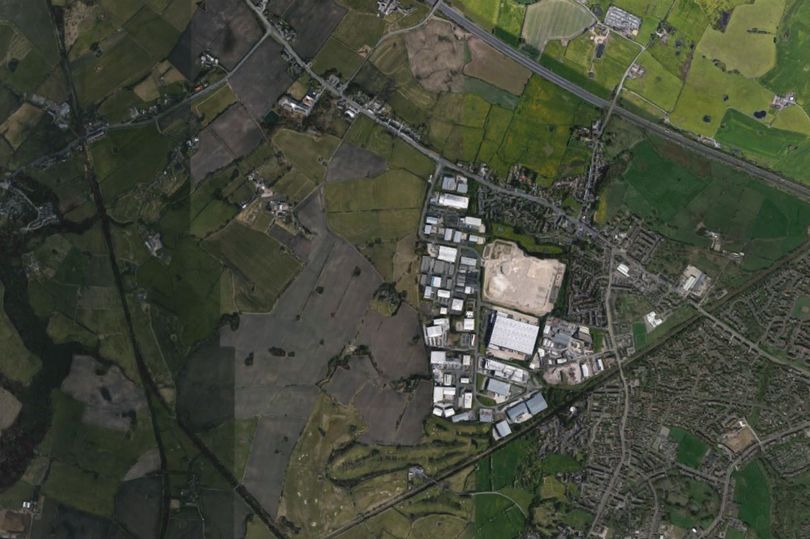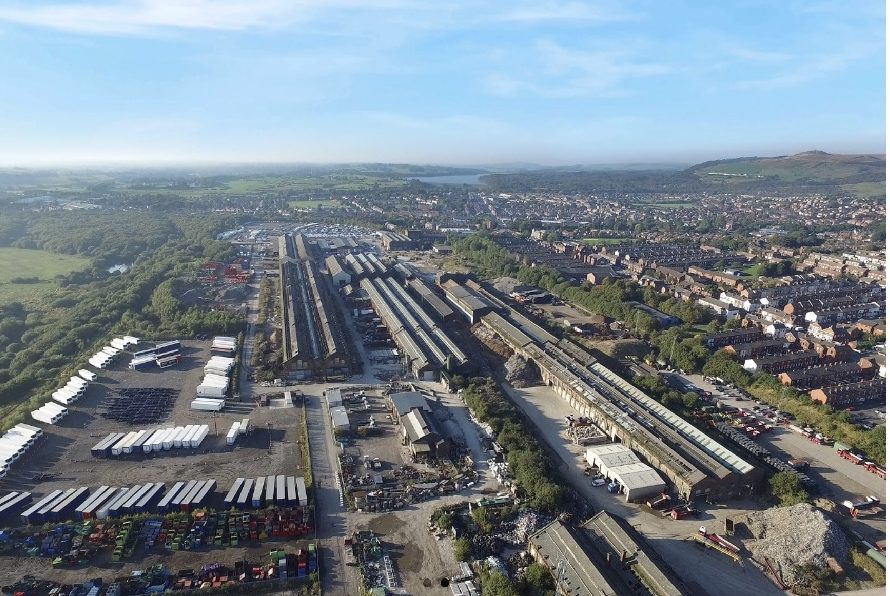The huge plans that are set to transform the borough of Bolton

In partnership with
Manchester’s skyline has transformed over the recent years with developments booming across the city.
But, while the centre of Greater Manchester continues to boom and attract investment, talent and big businesses, towns across the region are making sure they are not left behind.
And in Bolton, big plans are on the horizon which could see the face of the borough changed forever.
Following the council’s funding bid in 2017, Bolton is estimated to secure more than £1bn in new investment to develop the town centre and surrounding areas to reinvigorate the local economy.
Several schemes are already on the go including new destinations that will expand the attractions of the town centre including Trinity Quarter, Church Wharf, Croal Valley, Crompton Place and Cheadle Square.
But what does this mean for the borough and how is placemaking taking shape following the challenges of the pandemic?
At a recent ‘Regenerating Bolton’s Economy’ event, TheBusinessDesk.com in partnership with Orbit Developments brought together a panel of experts to explore more.
The panel included: Gerry Brough, director of place development, Bolton Council; Karen Edwards, chief executive, Bolton Lads and Girls Club; Phil Foster, chief executive, Love Energy Savings; Tony Jones, managing director, Orbit Developments; and Mike Todd, CEO, Near-Life.
In the first of a series of features exploring Bolton’s future, Gerry Brough gave an overview of the schemes, the new opportunities and new investment in Bolton that will change the lives and prospects of many across the borough.
Brough firstly pointed to Bolton’s location as one of its biggest advantages. With the M6 corridor linking the town to Cheshire and Lancashire, Bolton was a magnet for businesses looking to relocate, he said.

Wingates site in Bolton
Schemes such as Wingates Industrial estate provided a “positive effect on the local economy in terms of construction, permanent jobs and investment,” adding that it was “no good being the best location in the world if you don’t have sites for businesses.”
Harworth Group, a leading regenerator of land and property for development and investment, is behind Wingates. It secured planning approval last June for the development of up to 1.1m sq ft of logistics and manufacturing space with the potential to create up to 1,500 new jobs.
The site is adjacent to Junction 6 of the M61 and is in close proximity to Harworth’s existing Logistics North site, the North West’s largest live commercial development.
“With these sites we’re attracting the businesses and the jobs that Bolton needs,” said Brough.
Innovation will also play a key role in Bolton’s future through ‘Health Innovation Bolton,’ an exciting initiative to develop a health innovation cluster adjacent to Bolton Hospital.
Said Brough: “We’re currently working with two development partners with a view to develop 500 acres into a centre of excellence for the health industry which will provide the space for businesses in the health sector and harness the future talent.
“This is a major scheme for the town which will be at the forefront of transforming the health and wellbeing of Bolton and beyond.”
Hulton Park, Peel L&P’s plans to restore Hulton Park through the creation of a championship golf course and resort could also boost the town’s profile.
The plans were refused by Bolton Council’s Planning Committee in February but Peel is appealing the decision and a Public Inquiry date has been set for October 6 for revised Hulton Park plans.
The project is a potential game-changer for Bolton and would deliver a £240m investment, over 1,000 jobs, and a long-term national impact of £1.6bn.
The vision remains within Bolton’s sights as the project remains one of only two English venues shortlisted by UK Sport and Ryder Cup Europe for an English bid for the 2031 Ryder Cup.
Under the revised and improved proposals, Hulton Park would be restored and opened-up for community access for the first time in its 700-year history, delivering 12km of new and improved public walking and cycling trails in historic parkland for families, residents and visitors to enjoy.
If it wins approval the scheme ‘could put the town on a world stage’ said Brough.
“The past four years have really been focusing on Bolton town centre, and that’s been challenging because of the pandemic. But outside of Bolton town centre there’s some quite interesting developments being planned now. There is a lot happening in Westhoughton, Horwich and Farnworth, and they’re schemes that we should all be excited about.”
Asked about placemaking and the opportunities for more residential, Brough said while residential development has been a struggle getting through the planning system, the town has continued to meet its targets for housing delivery with more than 700 housing units built last year alone.
One of the major schemes is Rivington Chase which will see more than 1,700 new homes built on the former Horwich Loco Works site.
It is one of the biggest brownfield regeneration projects in the North West and 450 homes have already been built.
A link road will connect the site to Middlebrook Retail Park, Horwich Parkway Railway Station, and junction six of the M61. It is considered critical to the overarching Rivington Chase project, promising to improve access to the site and provide vital infrastructure that takes pressure off congested roads.
Works is being undertaken by landowners Bluemantle alongside Bolton Council, Homes England, HKR, and Network Rail.
Brough said: “Regeneration is a combination of bringing employment, developing land and residential accommodation.
“Obviously we would like to see more residential development closer nearby to industrial development to avoid people commuting large distances and so on.
“I guess it’s a challenge for Bolton because a lot of the developments take place in the western half of the borough.”

Former Horwich Loco Works
He said the housing scheme at Horwich Loco Works “will set the platform for Bolton for the next 10 years.”
“It’s not just about developing the economy but it’s also about creating more jobs and more high value jobs,” he said.
“Bolton is actually a very low productivity area. When you look at the wages in Bolton compared to other areas, it is lower than the Manchester average and well below the UK average, so there is a real imperative to bring more high earning wages into the economy to create that disposable income which will then allow for other leisure and hospitality businesses to come in on the back of it.”






